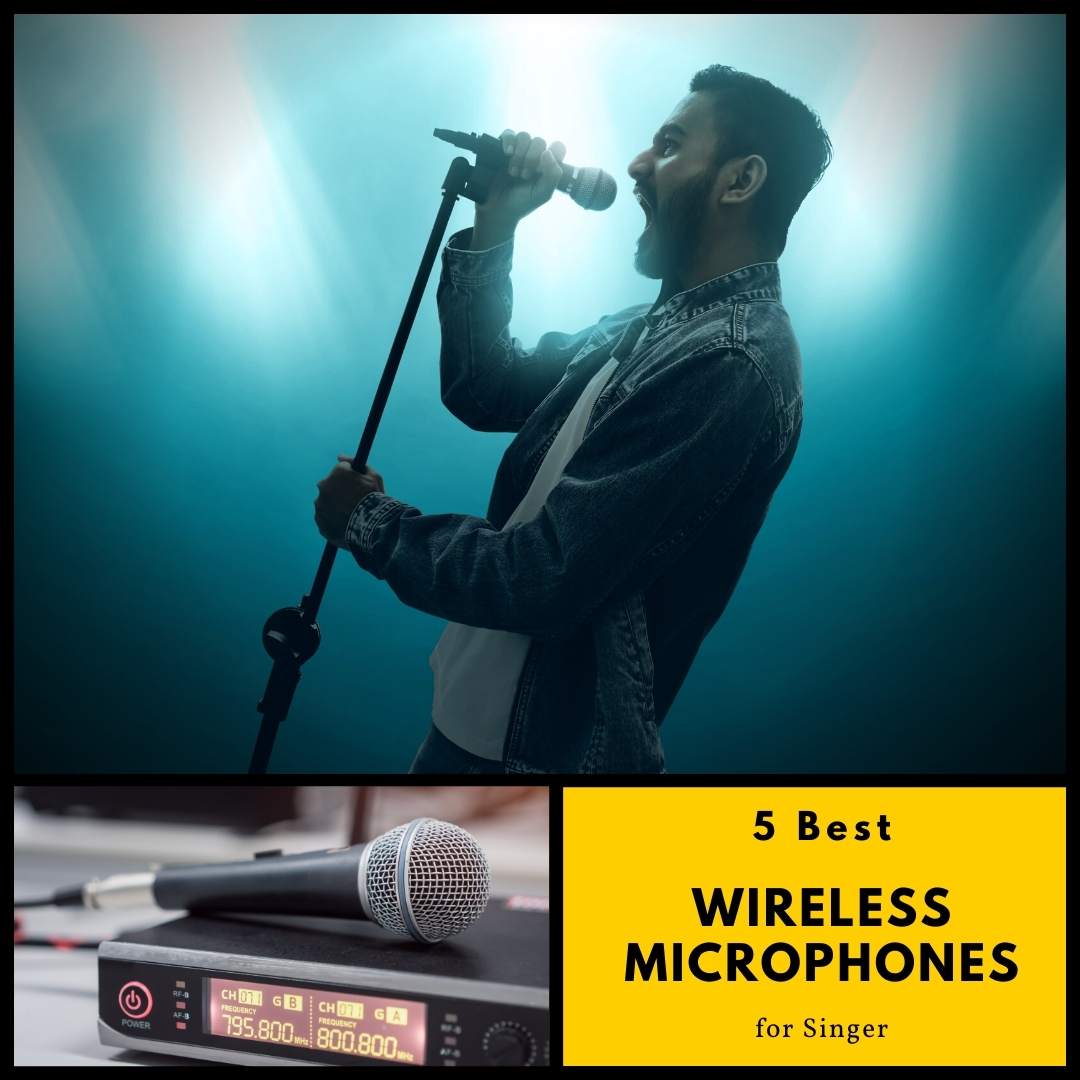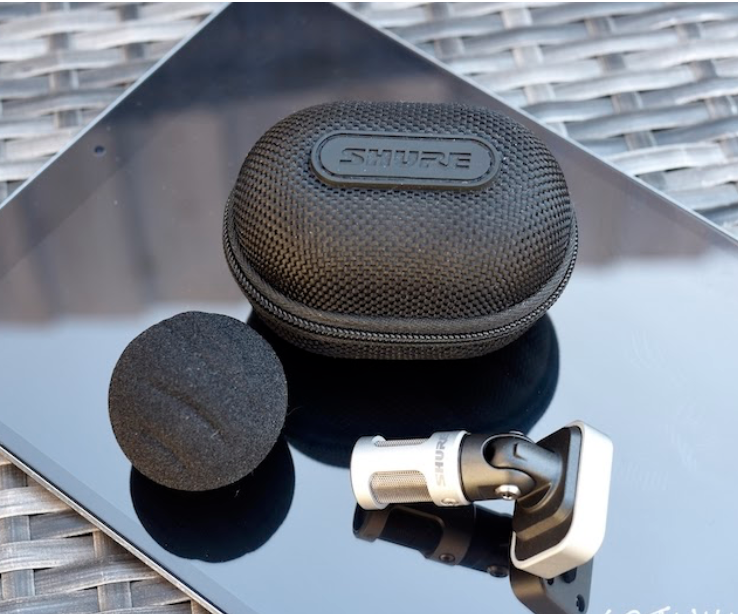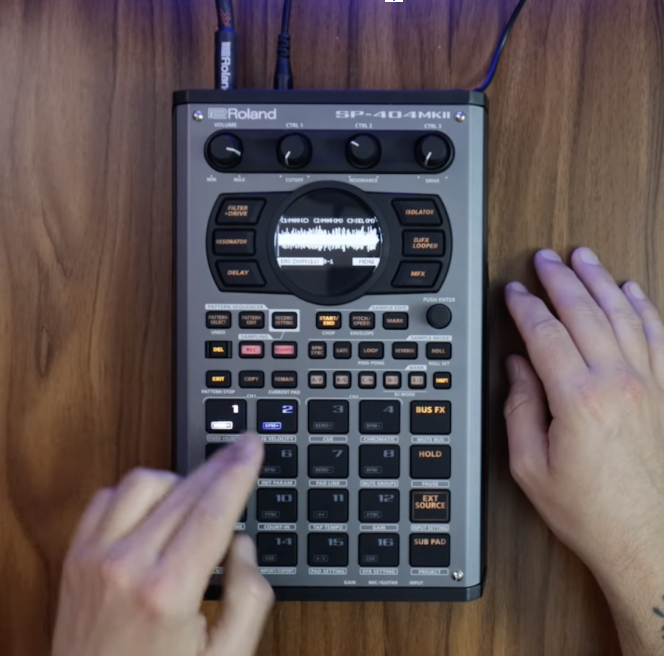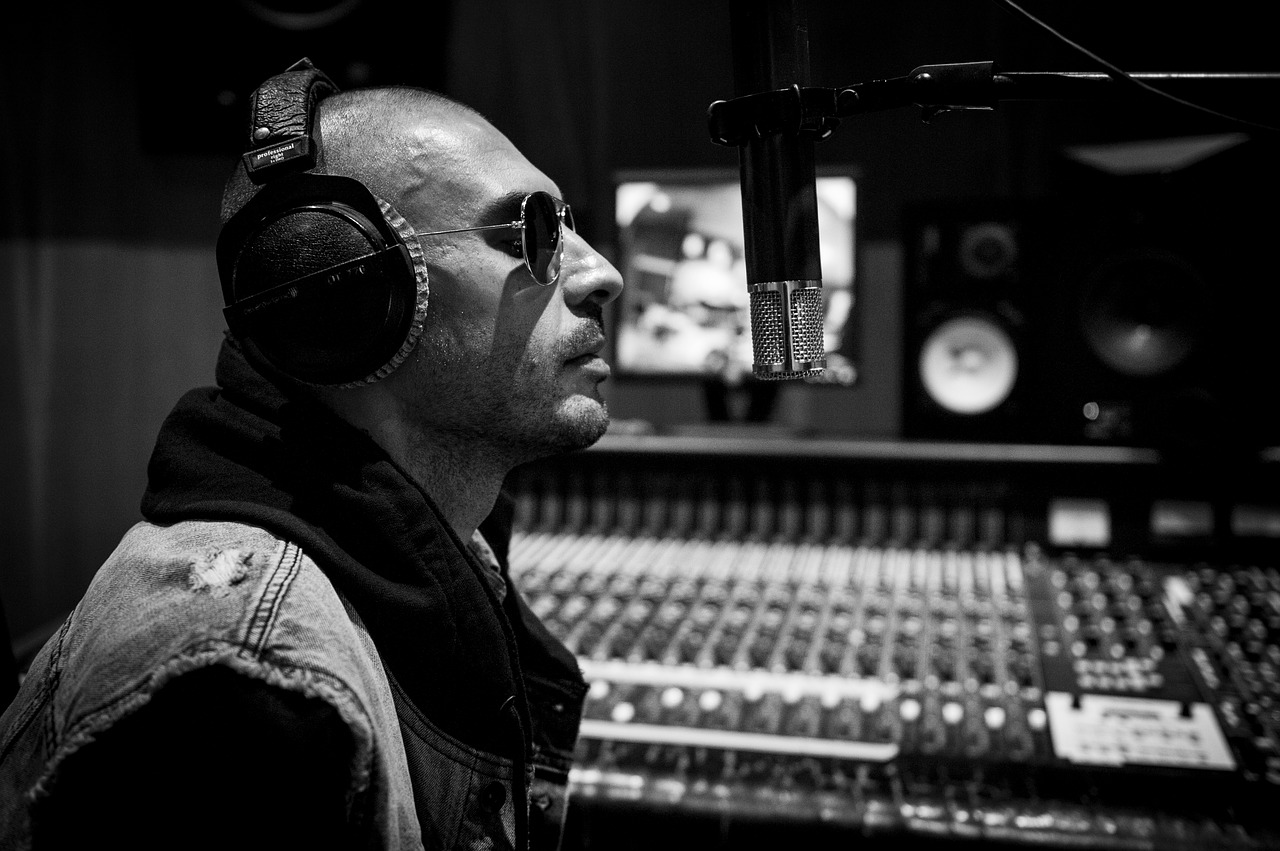
What Is A De-Esser? 4 Best Free De Esser
November 21, 2021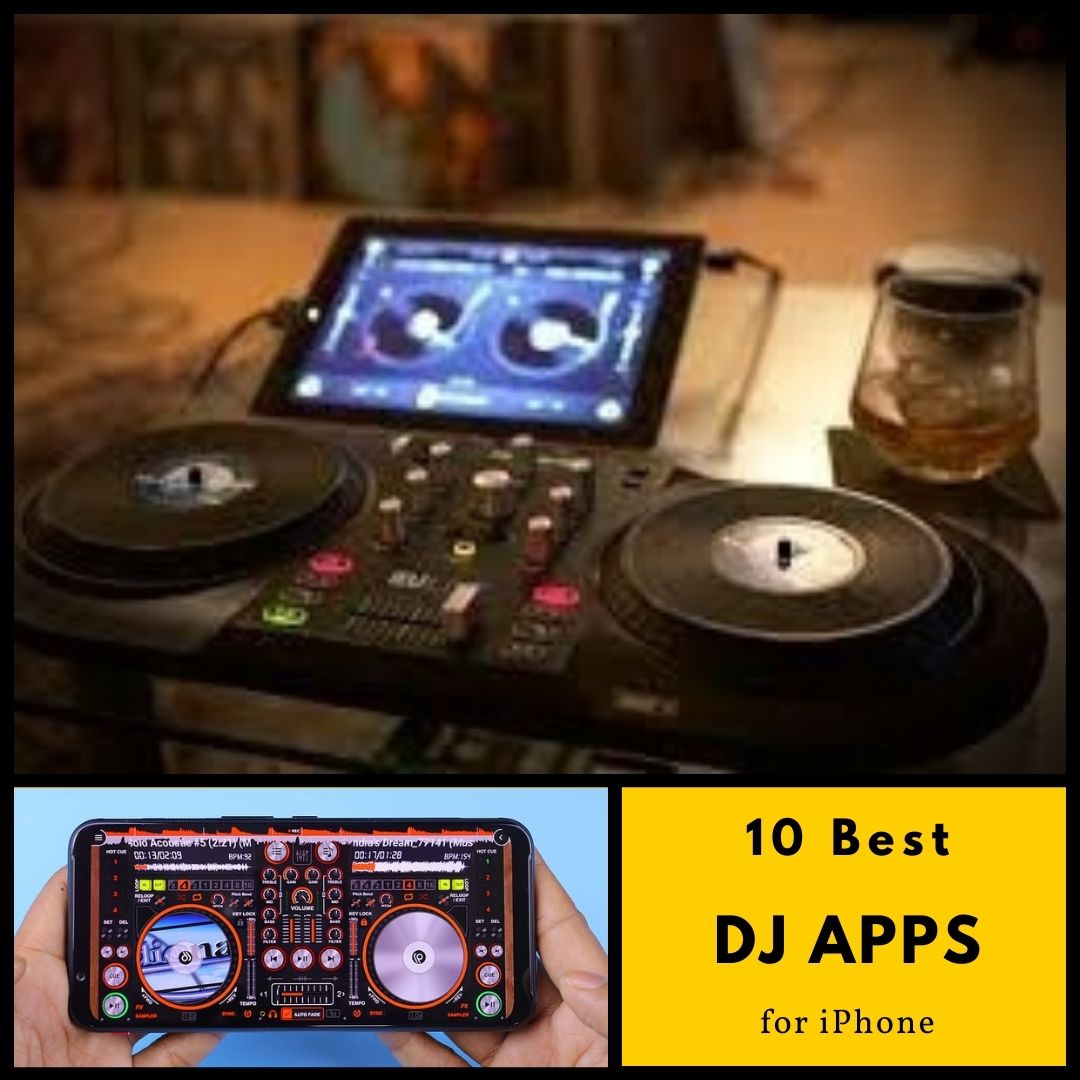
10 Best DJ Apps for iPhone
November 23, 2021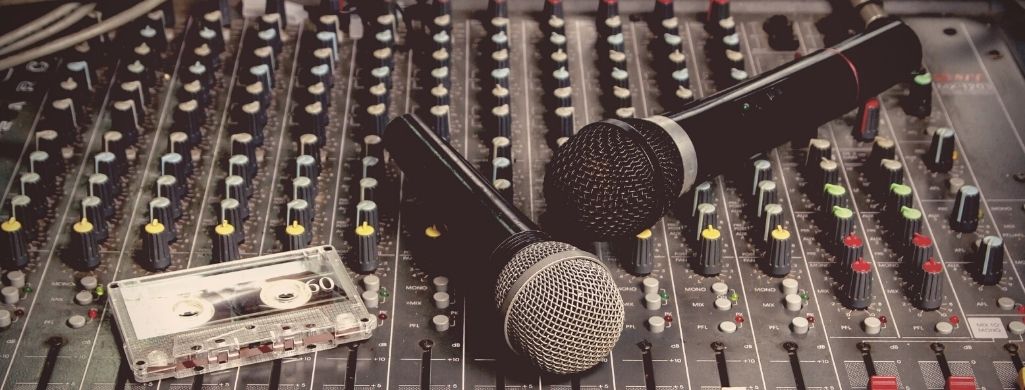
At a certain point in a singer’s journey, wireless mics become a no-brainer. After all, they provide mobility as well as diminish the chances of tripping, causing anything from minor disturbances to serious injuries.
Are you done with occasionally getting shocked on your lips when you touch the mic? Or maybe the neat freak in you just can’t handle the cluttered look of your studio anymore.
If you can relate to any of that, this post is for you. Let’s take a look at some of the best wireless microphone for singers.
Our Recommendations of Best Wireless Microphone for Singers : (Professional)
For Professional:
| Image | Product | Feature | Price |
|---|---|---|---|
|
TOP Pick
 |
Shure BLX24/PG58-H10
|
Impressive range. Durable and lightweight. | Check Price |
|
Trending
 |
Sennheiser EW 500-965 G3
|
Durable wireless mic with easy synchronization. | Check Price |
For Begineers:
| Image | Product | Feature | Price |
|---|---|---|---|
|
TOP Pick
 |
Fifine K025
|
Easy to install. Very affordable. | Check Price |
|
Trending
 |
Tonor TW-820 UHF
|
Made out of metal, most durable on the list. | Check Price |
|
Trending
 |
Phenyx Pro PTU-5000A
|
Excellent stability and virtually no distortion. | Check Price |
Wireless microphones can seem like a perfect solution, but there are some things to consider. Interference, signal loss, and the battery can all affect your mic’s sound quality, especially in a live performance.
It’s crucial to know what kind of mic works best for an intended purpose, and that one way or another, you’ll need to give up one advantage for another.
1. Shure BLX24/PG58-H10

The PG58 wireless microphone offers excellent bang for your buck. It reproduces your voice naturally, and it flaunts lightweight yet rugged construction.
What’s more, this mic can easily fit in a backpack, which makes it ideal for mobile applications. It’s also compatible with 12+ systems per frequency band at once.
This Shure mic has an impressive range of 300ft, which gives you lots of freedom to move around if you’re performing in an open space or need to go from one spot to another.
The mic’s frequency response is 50 Hz up to 17k Hz and it requires two AA batteries, which are conveniently included with the package.
2. Sennheiser EW 500-965 G3

The Sennheiser EW 500-965 G3 is easily one of the best options you could get when it comes to wireless mics. It’s used by professional singers and some of the most famous artists.
This masterpiece of a mic is compatible with 32 channels. This allows for easy synchronization. Its frequency response is 25 Hz up to 18k Hz, and its range is 330ft.
This is one of the few wireless mics that you don’t really need to worry about interference with. It even comes with a built-in Ethernet port to control it securely through your computer.
To top it all off, this is one of the most durable wireless mics on the market today. So, what’s the catch? Its four-digit price tag, of course.
Our Recommendations of Best Wireless Microphone for Singers : (Beginners)
If you can invest that kind of money in a mic, chances are you’ve got considerable knowledge in the world of audio tech and already know your way around wireless microphones.
So let’s look at some more realistic options; budget, beginner-friendly wireless microphones that will give you your money’s worth.
1. Fifine K025

If you see a wireless mic under $50, chances are you won’t give it a second look. This is why this mic is very impressive.
While the range isn’t the greatest on this one, it wins out by being a much more budget-friendly option. This mic is recommended for indoor use, with only around 10ft effective range.
The frequency response on this microphone is 50 Hz up to 18K Hz, which is very decent for a dynamic microphone. The microphone uses AA batteries and the receiver uses AAA batteries, so you’ll need to have both on hand.
The device allows you to record sounds on separate recording channels, which, in turn, makes editing the audio notably easier in post. The mic is also insanely easy to install; just unbox it, plug it into speakers, a mixer, or a guitar amplifier, and just go to town.
Another plus is that it’s not too easy to turn on and off, which means you won’t be turning it off accidentally while performing. Its weight is great despite being made out of ABS plastic.
2. Tonor TW-820 UHF

Unlike most wireless microphones, the Tonor TW-820 UHF is made out of metal, which provides great protection against bumps, scratches, and scrapes.
This mic offers professional-level sound quality, as it doesn’t suffer from any stability issues, be it pops, volume drops, or static.
The device is very simple to set up and only requires four AA batteries. It has a decent range of 200ft, so you won’t have to worry much about mobility.
3. Phenyx Pro PTU-5000A

This microphone and receiver are made for picking up sounds as smoothly and as clearly as possible. It promises robust and crisp sounds, and it delivers brilliantly, with excellent stability and virtually no distortion.
The PTU-5000A is very reliable and flaunts a range of 260ft/80m, which is ideal for outdoor events like parties, speeches, gigs, or conferences.
The microphone and the receiver both have a metal exterior which makes them more durable and sturdy. It’s a product built to last.
It requires eight AA batteries and they’re suitably included in the package.
Are Wireless Microphones for You?
Before you make a purchase you might regret, think of your priorities when it comes to your mic system’s usage.
A $100 wired mic will give you considerably better input than a $100 wireless one, so you might be better off buying a wired mic for your home studio.
Wired Mics Pros and Cons

The one reason most people will question the choice of a wireless mic over is reliability.
Wired mics are extremely reliable compared to their wireless counterparts. Yes, you may not be able to walk around the stage with as much confidence in your steps, but you’ll have confidence in your audio. You won’t worry about battery changes, drop-outs, or signal interference.
Most importantly, you won’t have to worry about the nightmare of technical troubleshooting that comes with wireless mics. Your wired mic isn’t working? Simple, there are usually no more than five things to check. Your wireless mic is puncturing the eardrums of your audience? Good luck figuring out where the problem lies!
Wireless Mics Pros and Cons
Having an untethered mic means you can use your hands freely, dance, or do a flip on stage if your heart so pleases. The simple truth is wired mics are sometimes not an option, depending on what you’re using them for.
Another thing that we’re willing to bet directly contributes to wireless mics’ sales is that lip zap. Getting your lips electrocuted by your mic will inevitably throw you off, possibly compromising a whole recording. One sure way to get rid of that once and for all is just switching to a wireless mic.
To Sum Up
The mics listed above are nowhere near the only good ones available; there are a plethora of very high-quality microphones out there. These are also only handheld options, but there are excellent lavalier and headset mics out there that might better suit your needs.
Before you make a big purchase, we suggest that you try things out with a cheaper option first. Once you know what you’re signing up for, go for those big industry names if it’s right for you.
You may also like,

